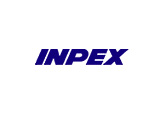|
|
TODAY.AZ / Business
Iran warns Japanese to act on oil deal soon
02 October 2006 [21:52] - TODAY.AZ

Japan has been repeatedly warned by Tehran that its patience is wearing out on the protracted talks to develop the oil field, which is in Azadegan. Several previous deadlines have passed without Iran's carrying out a threat to end talks or offer the deal to others.
Japan has the rights to the oil field, but talks have stalled since the deal was signed in 2004, when the project was thought to require an investment of $2 billion.
"The Japanese side has one or two days to express its opinion about the project," a government spokesman, Gholamhossein Elham, said at a news conference. "If the issue is resolved through dialogue and talks, we will continue it. Otherwise, there is another way that the Oil Ministry can study."
He said Japan's failure to show its commitment would lead the Oil Ministry to hold talks with other companies. Iranian officials have previously threatened to offer the project to companies from China, Russia and Iran.
The Oil Ministry's Web site said that time was running out for Inpex and that Iran opposed a request for more time.
"Iranian officials have told the Japanese side that no excuse for delaying the development of Azadegan oil field is acceptable and Iran is strongly opposed to extend the time," it said.
The ministry added that Inpex might be given only a small part of the field to develop if there was no deal by the end of these talks.
The state news media said Sunday that talks were continuing, even though the Iranian oil minister, Kazem Vaziri- Hamaneh, last week gave the Japanese until Friday to complete the deal.
The talks have previously faltered over how to value the deal, including over the price of steel that would be used in the project and the extent to which the borderland field has been safely cleared of mines from the 1980- 1988 Iran-Iraq war.
Japan's trade and industry minister, Akira Amari, told reporters on Wednesday that talks between Tehran and Tokyo to develop the field appeared to be hitting a dead end. But the negotiations, Amari said, should continue past the Sept. 30 deadline because the Azadegan project is strategically important for Japan's energy security.
A contract to develop the southwestern field could put Inpex, in which the Japanese government is a major stakeholder, in conflict with the United States, which is threatening to impose sanctions on companies investing in Iran's energy sector.
Takao Kitabata, deputy minister of the Japanese Ministry of Economy, Trade and Industry, said Monday that Tokyo would comply with any decision by the United Nations Security Council if it included Azadegan in economic sanctions against Tehran.
Asked about Japanese news reports that said the government would not extend loans or guarantee debts for development of Azadegan if the United Nations imposed sanctions, Kitabata declined to answer. But he said at a news briefing in Tokyo: "Japan is a member country of the United Nations. So if Azadegan becomes a subject of sanctions, we will comply."
/The International Herald Tribune/
URL: http://www.today.az/news/business/30943.html
 Print version
Print version
Connect with us. Get latest news and updates.
See Also
- 27 October 2025 [14:18]
bp introduces cutting-edge deepwater intervention technology to Caspian - 27 October 2025 [11:01]
ADB to support Baku Metro with $700,000 technical assistance for green transition - 26 October 2025 [20:30]
Weekly update on Azerbaijani oil prices - 26 October 2025 [19:03]
Media seminar held under EU4Energy project - 26 October 2025 [18:00]
Garabagh region welcomes over half million tourists this summer - 26 October 2025 [16:05]
Weekly review of Azerbaijan's precious metals market - 23 October 2025 [12:59]
Greco-Roman wrestler crowned world champion - 23 October 2025 [11:14]
Uzbekneftegaz and SOCAR discuss acceleration of geological exploration in Ustyurt Plateau - 23 October 2025 [10:41]
Azeri Light crude edges higher at Augusta and Ceyhan ports - 23 October 2025 [10:20]
Autumn sowing campaign launched in Jabrayil district
Most Popular
 Azerbaijan, Georgia strengthen partnership in field of security
Azerbaijan, Georgia strengthen partnership in field of security
 Book on late photographer Samir Aliyev presented in Baku
Book on late photographer Samir Aliyev presented in Baku
 Art Weekend. Maksud Ibrahimbayov Creativity Centre to present multidisciplinary project 'Pistachio Tree: Roots of Memory' [VIDEO]
Art Weekend. Maksud Ibrahimbayov Creativity Centre to present multidisciplinary project 'Pistachio Tree: Roots of Memory' [VIDEO]
 FM Bayramov says that new agreement marks new era in Azerbaijan-UN Partnership
FM Bayramov says that new agreement marks new era in Azerbaijan-UN Partnership
 Baku hosts 'Study in Europe' Education Fair
Baku hosts 'Study in Europe' Education Fair
 Azerbaijani servicemen participate in Nusret-2025 Invitation Exercise
Azerbaijani servicemen participate in Nusret-2025 Invitation Exercise
 TURKPA's influence in Turkic World discussed in Ankara
TURKPA's influence in Turkic World discussed in Ankara
